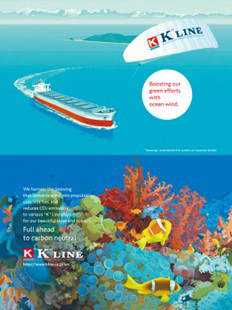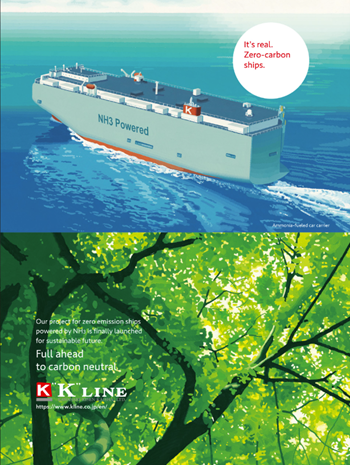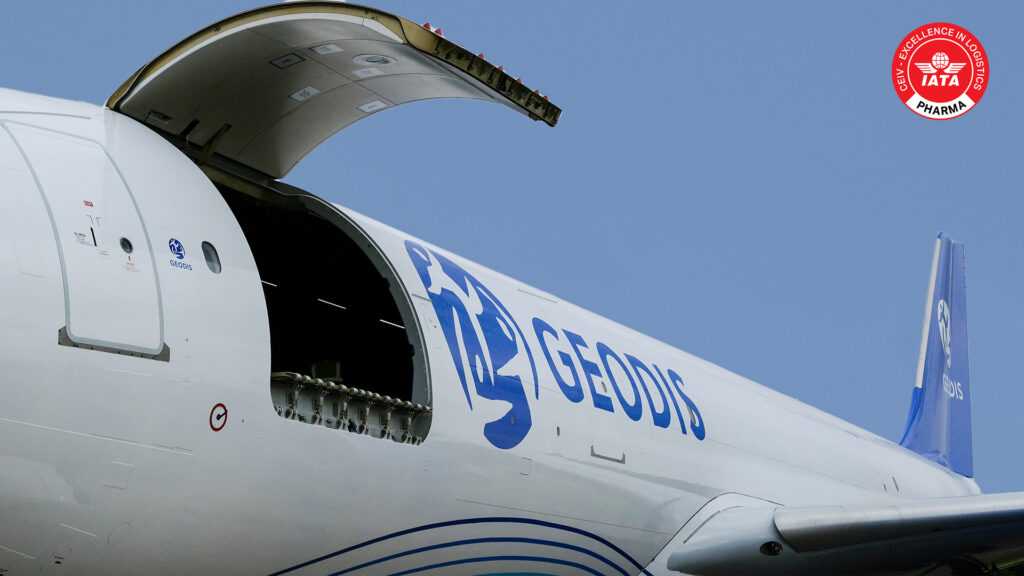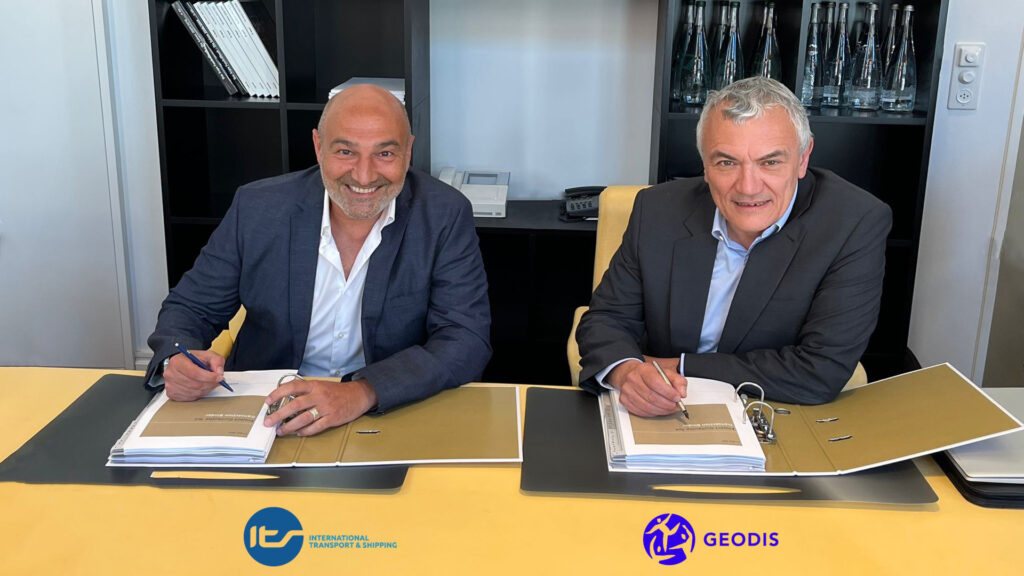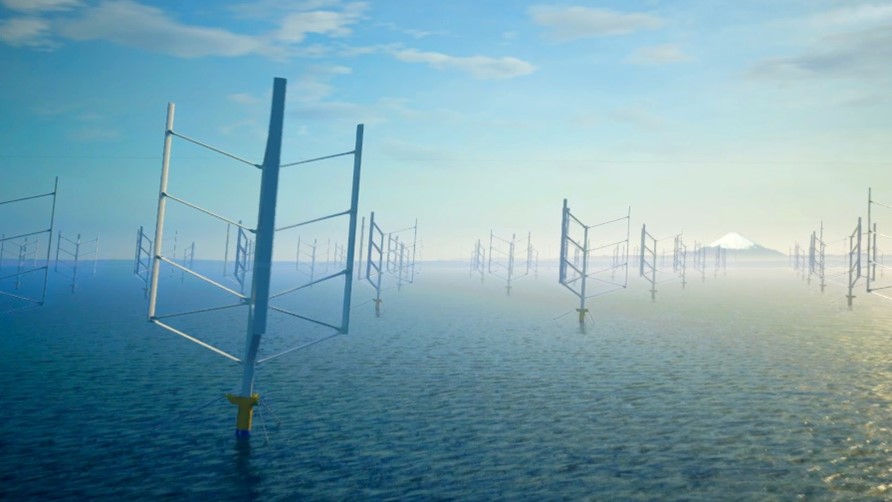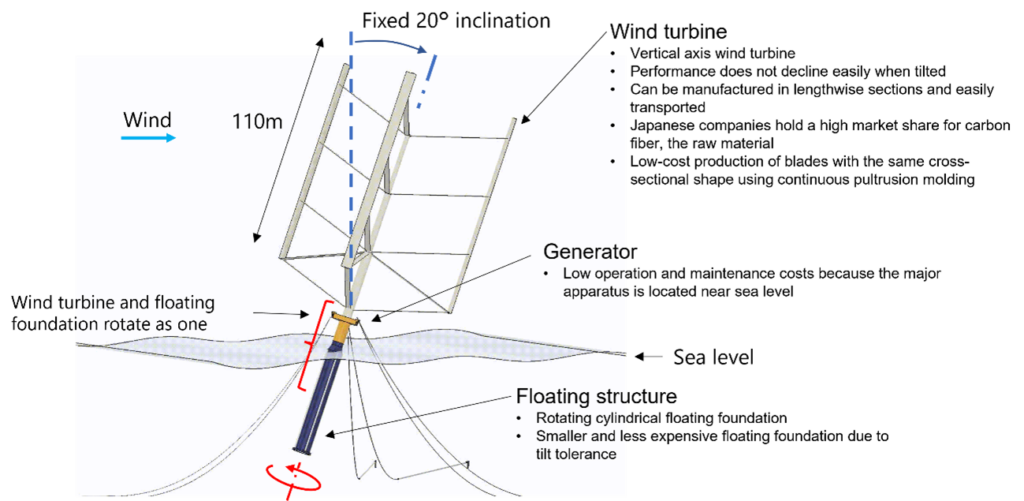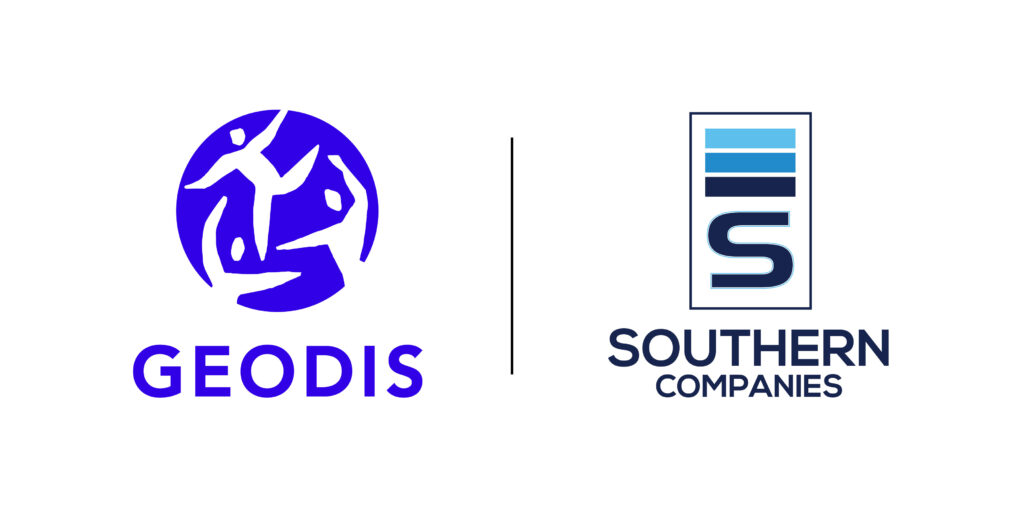Kawasaki Kisen Kaisha, Ltd. (“K” LINE) received the Gold Award in the Magazine Advertising Category for the 44th 2023 Japan BtoB Advertising Awards hosted by the BtoB Association Japan. The award was given for four advertisements in “K” LINE’s environment series, entitled, “Full ahead to carbon neutral”, and the award ceremony was held on June 9th.
The Japan BtoB Advertising Awards is the only comprehensive contest for BtoB advertising works in Japan, started by the BtoB Association Japan in 1980. The Awards are divided into 15 categories, including the Product Catalog Category, the Poster Category, and the Newspaper Advertisement Category, and the purpose of the Awards is to commend the creative results of business advertising in Japan and to acknowledge and offer evaluations of excellent BtoB advertising by experts in creating advertisements and marketing. This was the first award in any of the categories for “K” LINE.
“K” LINE established the long-term “K” LINE Environmental Vision 2050*¹ policy on the environment, defining a 50% reduction in CO2 emissions by 2030 compared to 2008 and establishing the goal reaching net zero in GHG (GreenHouse Gases) by 2050. In the Medium-Term Management Plan released in May 2022, “K” LINE established a long-term management vision to commit to a smooth energy transition for both the company and society and to promote activities aimed at realizing a low-carbon and decarbonized society. “K” LINE’s environmental advertising, entitled, “Full Steam Ahead to Low Carbon and Decarbonization”, was created based on specific initiatives and each of the four advertisements features a different model: an LNG-fueled pure car and truck carrier, a main measure to reduce GHG emissions by 2030; SEAWING, an automatic kite system to reduce CO2 emissions by more than 20% by utilizing wind power; a zero-emissions ammonia-fueled pure car and truck carrier aiming to achieve net-zero emissions by 2050; and a ship supporting offshore wind power generation that is expected to become popular in the future.
Going forward, “K” LINE will continue to strive to contribute to sustainable economic and social development and enhance corporate value while actively and flexibly responding to customers’ needs, including environmental responses which are expected to grow, and preserving the environment through business activities based on the “K” LINE Environmental Vision 2050.
*¹: “K” LINE Environmental Vision 2050:-Blue Seas for the Future-
https://www.kline.co.jp/en/sustainability/environment/management.html#002
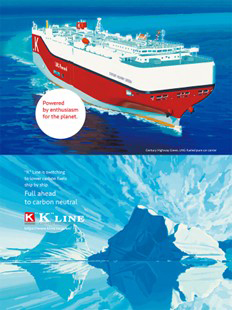
An LNG-fueled pure car, truck carrier
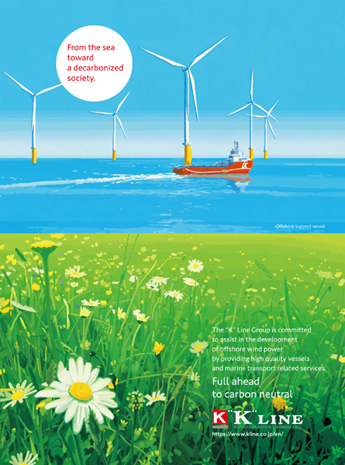
Ship supporting offshore wind power generation
